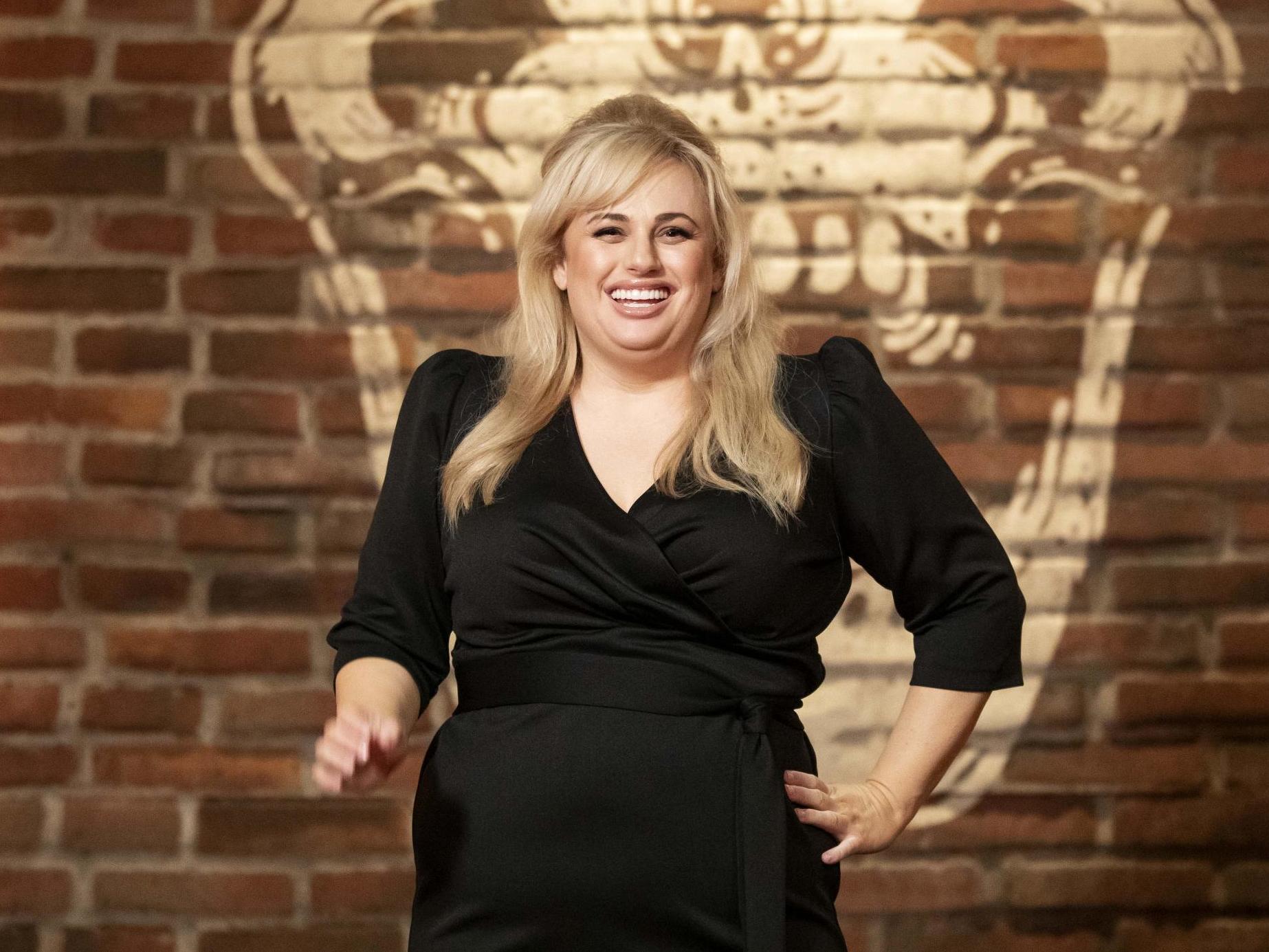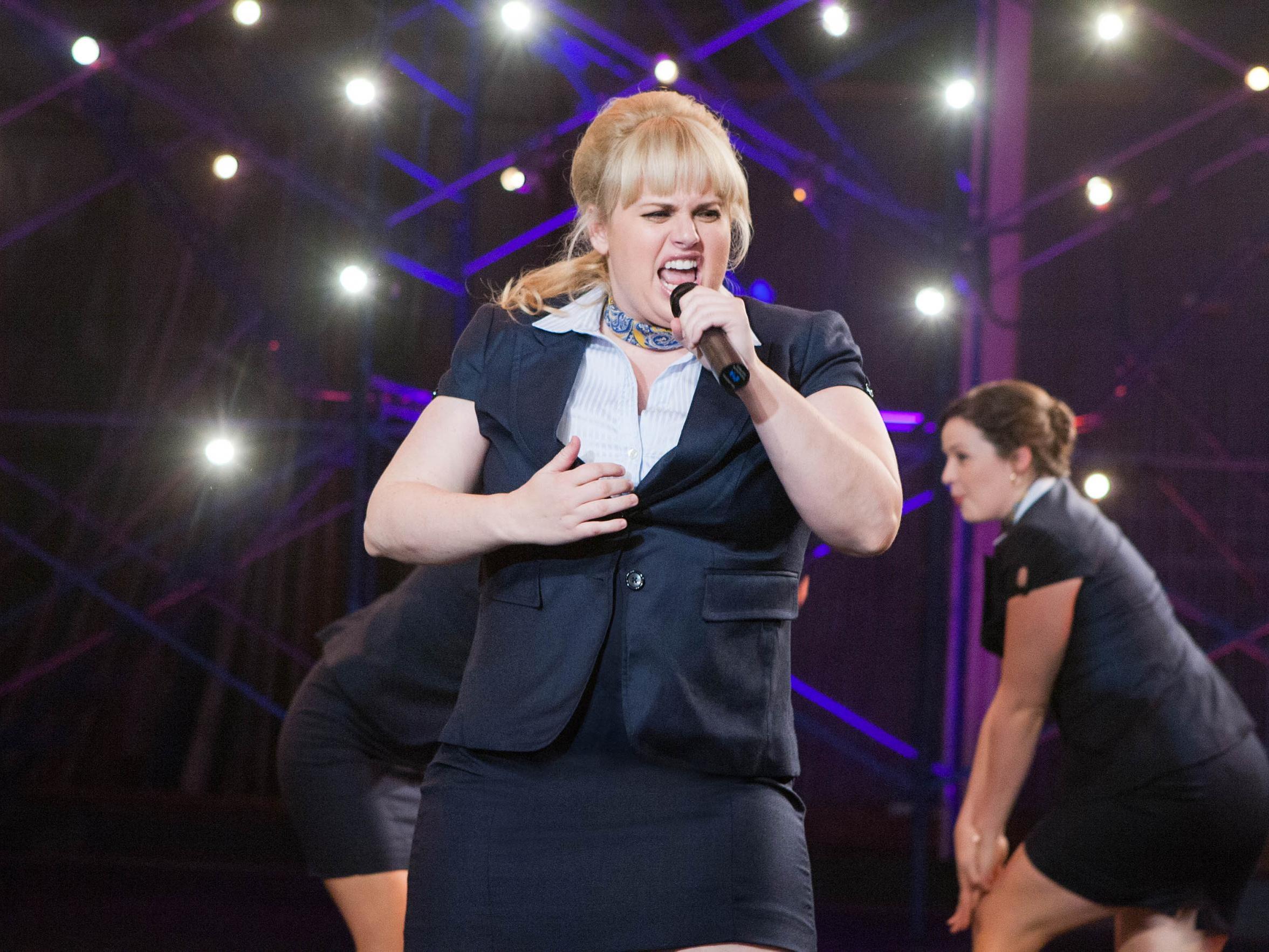Rebel Wilson: ‘Men get very intimidated by me. You can see it in their eyes’
The ‘Pitch Perfect’ star talks to Alexandra Pollard about her new Amazon series ‘LOL: Last One Laughing’, men’s reaction to funny women, and how weight gain prompted her to pivot to comedy


Your support helps us to tell the story
From reproductive rights to climate change to Big Tech, The Independent is on the ground when the story is developing. Whether it's investigating the financials of Elon Musk's pro-Trump PAC or producing our latest documentary, 'The A Word', which shines a light on the American women fighting for reproductive rights, we know how important it is to parse out the facts from the messaging.
At such a critical moment in US history, we need reporters on the ground. Your donation allows us to keep sending journalists to speak to both sides of the story.
The Independent is trusted by Americans across the entire political spectrum. And unlike many other quality news outlets, we choose not to lock Americans out of our reporting and analysis with paywalls. We believe quality journalism should be available to everyone, paid for by those who can afford it.
Your support makes all the difference.When Rebel Wilson was in college, studying law (her parents’ choice) and acting (hers), she developed a condition called polycystic ovary syndrome. “I gained a lot of weight pretty quickly,” she says, “and I noticed that the bigger I got, the ‘funnier’ I was. I wasn’t actually doing anything different.” She’d planned to go down the dramatic acting route – law was a back-up – but she decided to change tack. “There’s a long tradition of bigger women in comedy. I am quite a strategic person, so I was like, OK, I’m obviously overweight and love eating – bit of a personal flaw – so I’m gonna use that to my advantage and go hard with the comedy. When I go to America, I’m gonna say, ‘I’m the female Jonah Hill, guys. That’s who I am.’ And it was a very successful strategy.”
It certainly was. Having found modest success in her native Australia on an SNL-style sketch show called The Wedge, Wilson was given a scholarship by Nicole Kidman to study with the famous improv troupe Second City in the US. While there, she was asked to audition for a starring role in Bridesmaids. The part – as the self-assured eccentric Megan – went to Melissa McCarthy, but director Paul Feig was so impressed by Wilson that he invented another role for her: as Kristen Wiig’s boundary-lacking roommate Brynn. She was only in a handful of scenes, but her performance, all unnervingly slow cadence and deadpan delivery, was a knockout. The film was “a classic”, says Wilson. “I wish they’d do a sequel.”
In the weeks after it came out, Wilson was cast in five more films. In each one, she nailed her comic colours to the mast – hers was a humour that was utterly unselfconscious, relying as much on pratfalls and slapstick as it did razor-sharp quips and off-colour remarks. “You call yourself Fat Amy?” asked Anna Camp’s Aubrey, of her beloved character in 2012’s Pitch Perfect. “Yeah,” she shot back. “So twig bitches like you don’t do it behind my back.” The film and its two sequels made Wilson a household name. “I’m so proud of that character,” she says. “I reclaimed being a bigger, confident girl, and I think it’s important for people to see that represented onscreen.”
We’re speaking over Zoom. Wilson’s in a hotel room in Australia, dressed to the nines in a blue gown, her teeth dazzlingly white even over webcam. Far from the whacky characters she plays, she is polite and calm, putting on no performance, cracking few jokes. Last year was a busy one for Wilson, who starred in four films of varying quality: Dirty Rotten Scoundrels re-hash The Hustle with Anne Hathaway (fun, ridiculous); Hitler Youth comedy Jojo Rabbit (divisively cartoonish); the romcom parody Isn’t It Romantic (slightly off the mark); and Cats (ghastly). This year is a little quieter. We’re here to talk about the new Amazon series LOL: Last One Laughing, a strange game-slash-reality show in which 10 comedians are locked in a room for six hours, and must simultaneously try and make each other laugh and avoid laughing themselves.

Wilson is both the presenter and the judge; the winner gets A$100,000 (£56,000). “The tone really descended after the first 20 minutes,” says the 40-year-old with a laugh. “I was shocked. It really went into a whacky, crazy, R-rated world.” I can’t say it’s a world I particularly enjoyed spending time in – one contestant comes out in a homemade jacket covered in penises, another forces everyone to watch while he sticks his fingers down his throat – but Wilson is a witty presence. She throws in the occasional risque joke – “Did he just say he was horny? I don’t think you should say that, Sam, given that you look like a paedo Little League coach” – without ever stealing their thunder.
Wilson likes comedy that’s “not censored”, she says. “I kind of like that freedom, personally.” This is, after all, the woman who stood onstage at this year’s Baftas and made a joke about Prince Andrew, who’d recently been accused of having sex with a 17-year-old girl trafficked by his convicted sex offender friend Jeffrey Epstein. And who starred in Jojo Rabbit, described in this publication as “daring, tender and sharp” and in The Telegraph as “a dismal dereliction of duty”. And who, a few days after we talk, will label the BBC’s decision to pull Little Britain from streaming services because of its use of blackface “a bit crazy”.

I doubt, then, that she had a problem with any of the quips on Last One Laughing – but one of them raised my hackles. Sam Simmons, the most outlandish contestant, says that he’s “scared of women”. Does that not irritate Wilson – the lingering notion that funny women are scary? She thinks for a second.
“I’ve come across a weird thing romantically,” she says. “I’ve often been interested in funny men, but funny men are never interested, romantically, in funny women. Never. And I don’t quite understand, because people always say they value a sense of humour in a person, but yet when a woman is funny…” And yet, there’s also the tired misconception that women aren’t as funny as men. “I mean, God, when Australian comedian Hannah Gadsby had her Netflix special, a lot of male comedians were criticising that,” she says. “I’ve been lucky, I felt like I moved to the US at a good time for female comedy. Bridesmaids was a pretty much all-female ensemble and crushed it, the Pitch Perfect franchise, again, pretty much all-female ensemble, where everybody puts in for the laughter and gets laughs. So I came at the right time.”
She’s experienced something else, though – men being intimidated by her. “I feel like I’m the nicest, most down-to-earth person,” she says, sounding genuinely a little despondent. “But you can see it in their eyes, they get very intimidated. And I don’t know why. Do they think I’m gonna make a joke about them at the Baftas or something? I don’t know.”
“I think the psychology behind it,” she concludes, “is that comedy is power. If you’ve got the ability to make people laugh, you have an inherent sense of power with that. And sometimes men feel uncomfortable with women having that. But of course, women have always been funny and talented. Maybe that’s scary.”
Two episodes of ‘LOL: Last One Laughing Australia’ will be released each week on Prime Video, ending with the finale on 2 July
Join our commenting forum
Join thought-provoking conversations, follow other Independent readers and see their replies
Comments